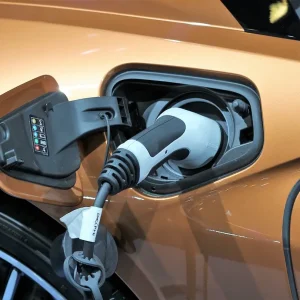Reducing emissions is at the forefront of fleet management strategy, as companies recognise the cost savings involved. Rachel Burgess looks at how the way daily rental firms naturally operate can contribute to lowering emissions
As the trend for lower emission cars continues and fleet managers wise up to the tax benefits and other cost-saving advantages, many are starting to consider how daily rental alongside longer term leasing contracts and owned cars can help improve a firm’s green credentials.
Due to the mileage accumulated in relatively short periods and factors such as supplying desirable, up-to-date products, daily rental companies have a fast vehicle turnover rate – their average car is 12 months old – and hence naturally deliver lower and lower emissions, especially when compared with grey fleet vehicles, which are an average of six years old.
“When you’re dealing with car rental opposed to vehicles you own, the fleets’ emissions continue to get better and better,” says Rob Ingram, Enterprise’s director of business rental. “We keep buying the cars with new technology that have better mpg and emissions. Some firms want to cut their CO2 and see daily rental as a way to encourage staff to take lower emission cars. We can then report whether they’ve achieved that, by showing them trends and graphs throughout the year.”
Indeed Enterprise, which has 45,000 vehicles averaging 47mpg and 151g/km CO2, has just added average CO2 emission details to clients’ monthly management reports, after requests for this information flooded in.
Demand from consumers means daily rental firms are quickly growing their lower emission offerings. The BVLRA says many of its members already offer eco collections that enable customers to specify low-emission vehicles, while Avis, Hertz, Europcar and Enterprise have announced that they will be operating Nissan‘s new Leaf electric car from early next year.
Ingram says an interest in lower-CO2 rental cars started a couple of years ago, but was fuelled by the environmental benefits. Now cost is the driver for changes to daily rental habits: “There is a wish to help the environment, but cost-saving is so dramatic right now.”
He adds the public sector kick-started the trend, but larger companies are now also leading the way while small- and medium-sized firms are still involved “to a lesser extent”.
BVLRA chief executive John Lewis says: “The public sector is leading the way in this area as it has been set a number of emissions targets by central Government. Many private sector customers are still more interested in the overall rental cost than emissions, but this situation may well change as the economy continues to improve.”
According to Ingram, the class of car that firms are choosing has definitely, on average, dropped a class, for example from a group D (upper medium) to group C (lower medium), a trend Lewis has observed.
“A lot of organisations are looking for low-emission cars,” he says. “Many companies are also extending the life of their existing fleets and not acquiring new vehicles at the moment, so short-term rental is one of the few areas where they can take a positive step to cut their carbon footprint.”
Moving drivers away from grey fleet cars is a surefire way of improving a fleet’s emissions and cut costs, says Ingram. “I believe mileage reimbursement means more miles driven,” he says. “A lot of employees see that as an addition to their income. If you sit down and talk to them logically about public transport or daily rental then less miles are driven. If you take away the mileage reimbursement, it makes drivers more thoughtful about what journeys they make because you’re taking away their incentive.”
“Using low-CO2 vehicles is also one clear way firms can demonstrate their commitment to being green and ethical, both to their customers and their shareholders,” concludes Ken Bowling from Driving Risk Management. “Corporate social responsibility is a buzzword right now. The rental sector will undoubtedly be affected by this – changing vehicles, whether rented or not, is a relatively quick and easy way to establish your green credentials.”





